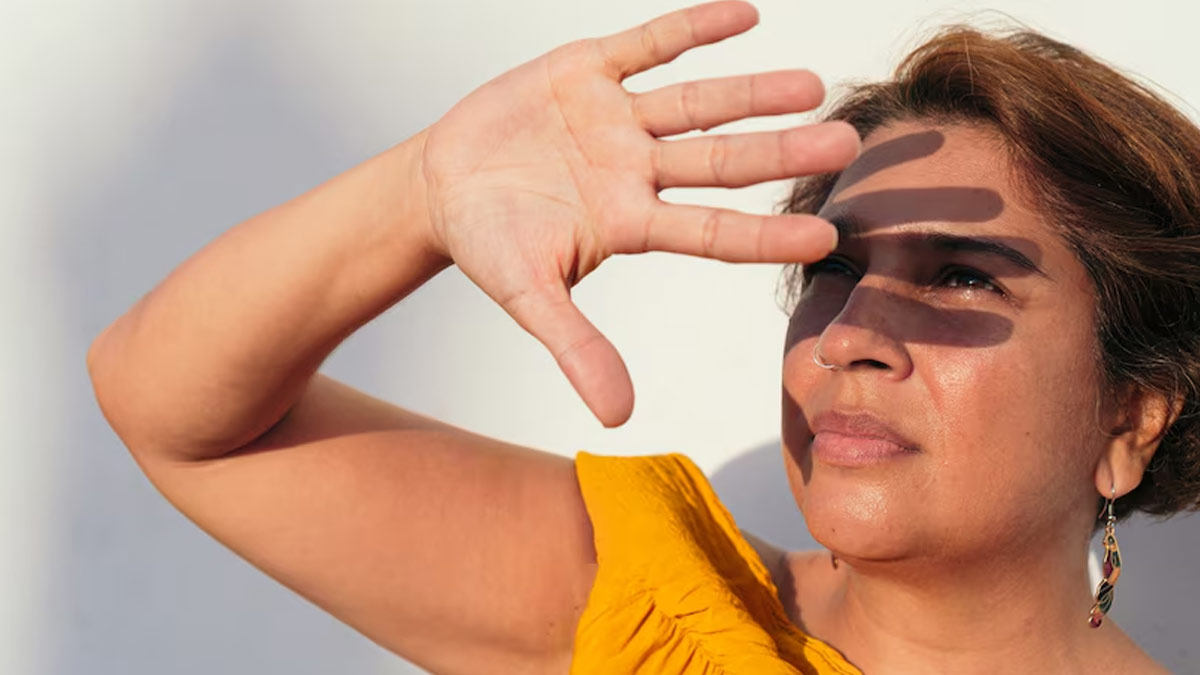
The stubborn temperatures are not ready to lower down and the shiny bright sun, with its scorching hot rays is making it more difficult to step outdoors. While it is essential to take care of your skin during these extreme temperatures, it is equally important to look for your eye health.
Table of Content:-
Prolonged exposure to heat and sunlight can lead to several eye problems, including dryness, irritation, and even more severe conditions like cataracts and macular degeneration. To safeguard our eyes, it's essential to ensure we're getting the right nutrients. Here are five vitamins that play a vital role in maintaining eye health during a heatwave.
1. Vitamin A

Vitamin A is perhaps the most well-known nutrient for eye health, and for a good reason. It plays a crucial role in maintaining a clear cornea, which is the outside covering of your eye. Additionally, according to studies, vitamin A is a component of rhodopsin, a protein in your eyes that helps you see in low light conditions. During a heatwave, the risk of dry eyes increases due to dehydration and excessive exposure to sunlight. Vitamin A helps in maintaining the surface tissues of your eyes and is essential for producing the pigments necessary for proper functioning of the retina. Including vitamin A-rich foods in your diet can help keep your eyes lubricated and improve overall vision.
Sources of Vitamin A: Carrots, sweet potatoes, spinach, kale
2. Vitamin C

A study claims that the oxidants in vitamin C helps protect your eyes from damage caused by free radicals and ultraviolet (UV) rays from the sun. It plays a role in reducing the risk of cataracts and macular degeneration, two conditions that can be exacerbated by excessive sun exposure. Heatwaves often mean more time spent outdoors, increasing exposure to harmful UV rays. Regular intake of vitamin C can help strengthen the blood vessels in your eyes and improve the overall health of your retinal cells. This, in turn, can help mitigate the damage caused by prolonged sun exposure.
Sources of Vitamin C: Citrus fruits (oranges, lemons, grapefruits), berries (strawberries, blueberries), bell peppers, broccoli, and brussels sprouts
Also read: Can Vitamin D Deficiency Cause Unexplained High Blood Pressure?
3. Vitamin E

Vitamin E is another potent antioxidant that protects your eyes from oxidative stress, WebMD says. It helps in maintaining healthy cell membranes and reducing inflammation, which can be particularly beneficial during a heatwave when your eyes are more prone to dryness and irritation. In the scorching heat, tear production may decrease, leading to dry eyes. Vitamin E helps in maintaining the lipid layer of the tear film, ensuring that your eyes stay moist and comfortable. Incorporating vitamin E-rich foods into your diet can help keep your eyes hydrated and reduce the risk of irritation.
Sources of Vitamin E: Nuts and seeds (almonds, sunflower seeds), spinach, avocado, wheat germ oil
4. Vitamin B2
Vitamin B2, also known as riboflavin, is essential for maintaining healthy eyes. According to the National Institute of Health, vitamin B2 helps reduce the risk of cataracts and protects your eyes from UV damage. Riboflavin also plays a role in the metabolism of other essential nutrients necessary for eye health. Heatwaves can lead to increased exposure to UV rays, which can cause oxidative damage to the eye's lens and retina. Riboflavin acts as a protective shield, helping to neutralize free radicals and reduce the risk of cataracts. Ensuring adequate intake of vitamin B2 can help protect your eyes from the harmful effects of sun exposure.
Sources of Vitamin B2: Dairy products (milk, cheese, yogurt), eggs, lean meats, green leafy vegetables
Also read: Vitamin A Rich Diet: 7 Foods To Eat For Improved Vision And Overall Health

5. Vitamin D
Vitamin D is not only crucial for bone health but studies have claimed that it also plays a significant role in maintaining healthy eyes. It helps in reducing inflammation, which can be a common issue during heat waves when eyes are more likely to become dry and irritated. While sunlight is a natural source of vitamin D, excessive exposure during a heatwave can lead to more harm than good. It's important to balance sun exposure with dietary sources of vitamin D to ensure you get enough of this essential nutrient without risking sun damage. Vitamin D helps in maintaining the overall health of the ocular surface and can reduce the risk of dry eye syndrome.
Sources of Vitamin D: Fatty fish (salmon, mackerel, sardines), fortified foods (milk, orange juice, cereals), and egg yolks.
Conclusion
As we brace ourselves for the scorching summer months, it's crucial to pay attention to our eye health. Incorporating these essential vitamins into your diet can help protect your eyes from the damaging effects of heat and sun exposure. Remember to wear sunglasses, stay hydrated, and take regular breaks from direct sunlight to keep your eyes healthy and comfortable during a heatwave. Your eyes will thank you for the extra care and nourishment!
Also watch this video
How we keep this article up to date:
We work with experts and keep a close eye on the latest in health and wellness. Whenever there is a new research or helpful information, we update our articles with accurate and useful advice.
Current Version